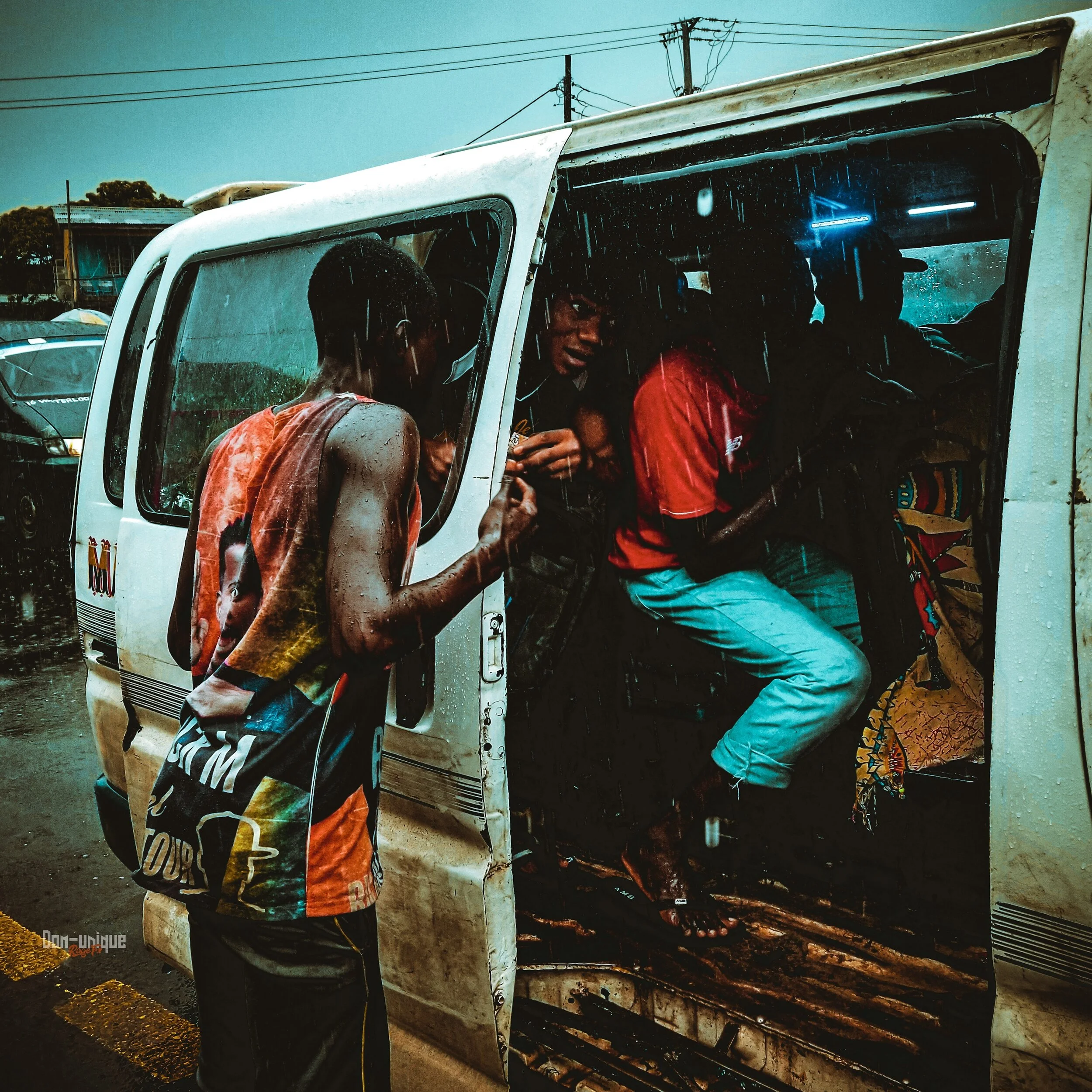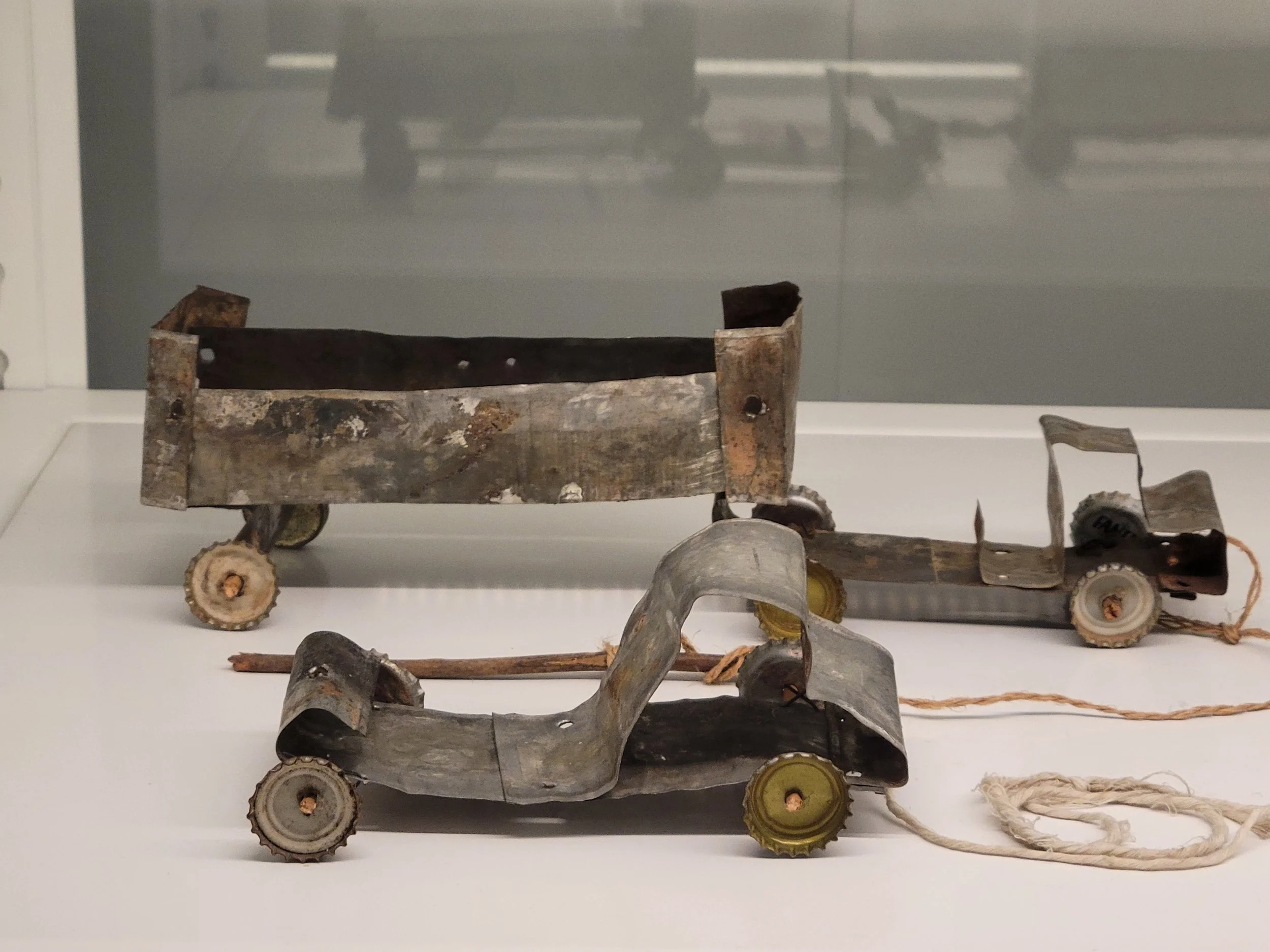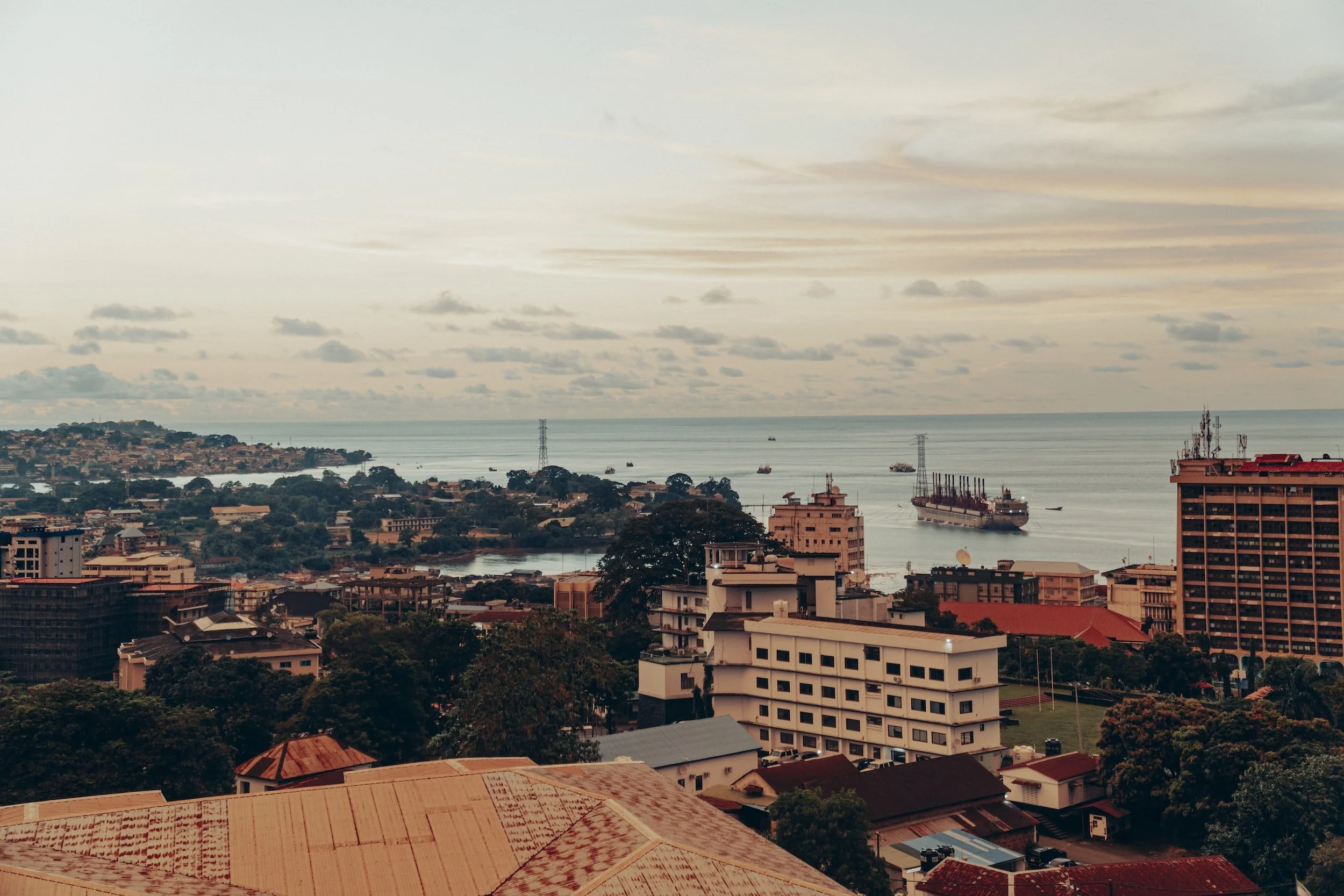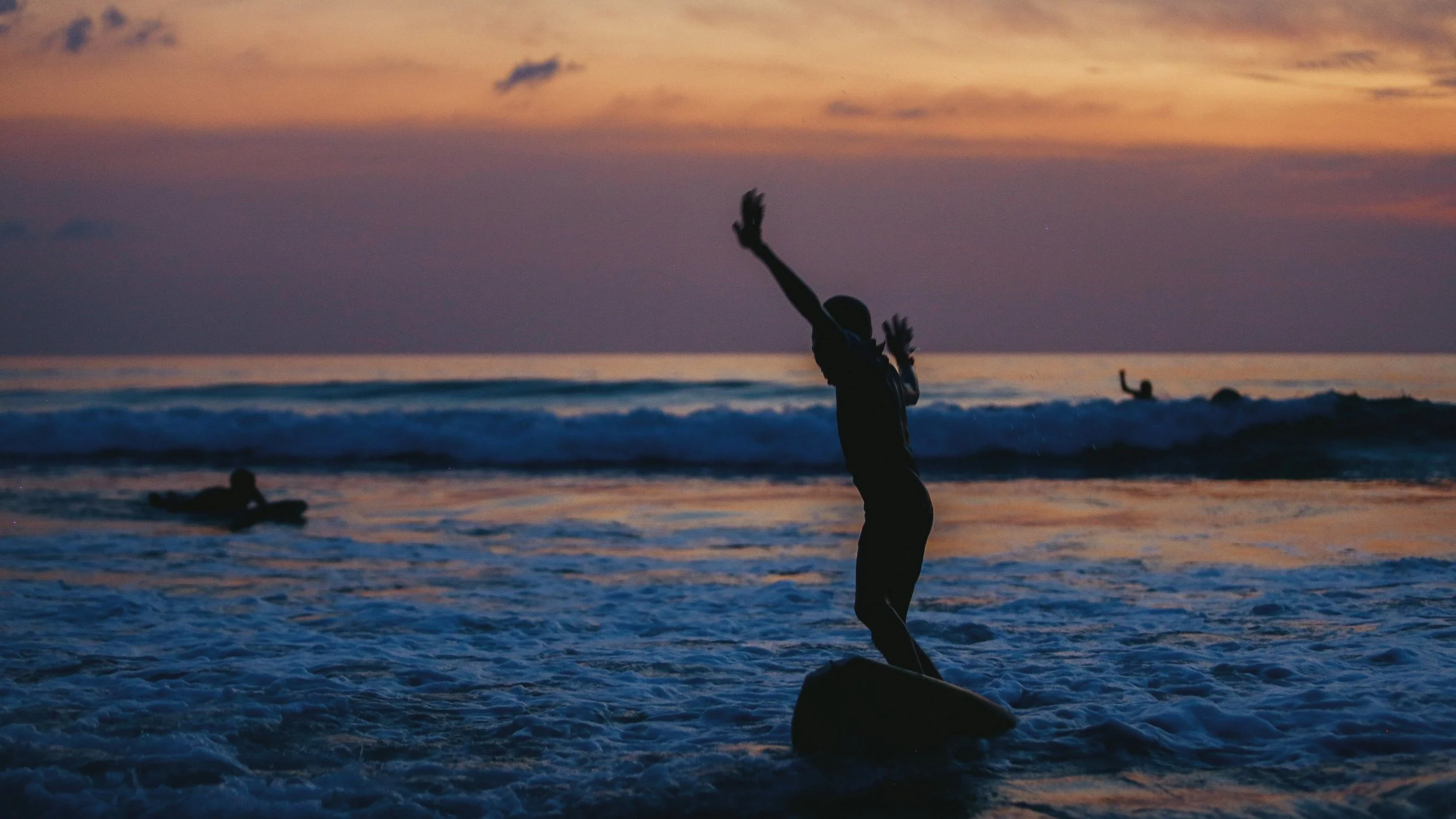
Toys from Africa
Toys from Africa by Melvin Sharty
As kids growing up in Kenema, in the east of Sierra Leone, we loved drawing, creating models of cars, boats, and jets out of paper. To produce a miniature vehicle, we would spend hours trying to understand exactly how the wheels turn, and then recreate it. We would also use pieces of cardboard and glue to make televisions because our parents could not afford one. We would light an oil lamp inside it to light up the paper screen, providing moving shadows. When we made these toys, our parents would scold us. They would even flog us and tell us to stop bringing scraps from the dustbin into the compound. Now I know that what was unique about these childhood inventions is that we were observant and would pay attention to details.
Between childhood and adulthood, those toys, and the inspiration we got from inventing them faded because no one thought anything of it. Our general science classes in schools focused solely on teaching about inventions from the West, miles away from our environment. Nobody paid attention to what was unique about our toys.
***
When I started traveling to the West, I developed a love for visiting museums. So, whenever I travel to a new city for work, school, or vacation, I always make sure to stop by a museum. More than anything else, museums are spaces where I learn, connect, and find inspiration. Now I know that the childhood spirit of wanting to make or create something is still in me.
Recently, I visited the American Museum of Natural History in New York. It was busy with visitors from all around the world having different accents and attires. At the grand entrance, we were greeted by security guards and a sculpture bearing a message about the museum’s mission since its founding in 1869. On the ground floor, I was met with the imposing skeleton of a Tyrannosaurus rex resting on an elevated platform. It was awe-inspiring to stand before one of the largest creatures to ever roam the Earth, with its massive jaws, fearsome teeth, and tiny arms. I saw parents and their kids playing around it. I too couldn’t resist taking some selfies with the skeleton in the background.
Photo Credit: Melvin Sharty
I then proceeded to the third floor where my inspiration to write this reflection was sparked. Everybody was busy taking pictures or just staring at the magnitude of wonder and creativity in front of them. However, there was one exhibition that didn’t get enough attention, perhaps because it was quite different from all the other exhibitions. I went there immediately.
The exhibition was labelled, “African Ethnography.” To my surprise, it was a collection of toys from Africa made of tins and cans—the same kinds of toys we used to make as kids. “Why are they here?” I wondered. And then, when I read further, I learnt that it was “to show people about the creativity of Africa’s kids.” I giggled. Are these not the same toys we used to make out of scraps as kids? I thought to myself. The exhibits were exact replicas of the toys I had made when I was a kid. Back then, we would use a knife to cut open the milk tin, a stone to flatten it, and with our bare hands, put all parts together to form slippers and various kinds of shapes.
'So silly,” that’s how the adults in our neighborhood would describe us because they didn’t know what our driving force was. They didn’t know that as kids, we were trying to find solutions, we were curious, and wanted to reinvent the world around us.
These toys didn’t inspire our parents, neither were our teachers excited by them, but here they were in one of the world’s most prestigious museums on exhibition for people from all around the world to see. I was amused. As I took some time to see more, I wondered, who gets the benefits out of this? Is it the western world?
***
At the age of twelve, a Sierra Leonean boy named Kevin Doe, taught himself engineering by building his own radio station in Freetown. Doe had also built a generator from scrap metals collected from dustbins in his neighborhood.
Jeremiah Thoronka, at fourteen, invented a device that uses kinetic energy from traffic and pedestrian congestion in Freetown to generate clean power.
Photo Credit: Melvin Sharty
Both innovators now live abroad where they are highly recognized and supported. This supports my point that if we cannot invest in our human capital, the West would come to invest in them and take them away. There are hundreds of examples of Jeremiah, Doe, and even me, kids who are out there in Africa, but would never take their inventions forward because people in their community never believed in them. What we considered as mere toys from Africa are all over the western world in museums, universities, offices, schools, and businesses.
I think that as Africans, we don’t often value what we have within our reach. The fact that I was seeing toys taken out African soil exhibited in the United States made me realize the importance of valuing our own ingenuity and creativity. Too often, we look elsewhere for inspiration or innovation, we overlook the treasures that are right in front of us, whether it’s in our communities, our forests, or our backyards. We rebuke our kids from playing or making things or asking questions. We criticize ourselves for trying new ideas. We are satisfied with old ways of thinking and doing.
We must start paying attention to the talents of our children, our youth, and our adults. Only then can we truly tap into the human capital of every person and realize the richness that surrounds us.
Africans- invest, support, and build your toys so the world would buy.
Melvin Sharty is the co-author of "Talking Kapok Tree & Other Short Stories", and author of "A Gift for Failure (a novella). Melvin lives in Harlem, New York where he works for a non-profit. During his free time, he enjoys writing, visiting museums, or playing soccer.
The Power of Love, not the Love of Power
An Ode to “I Picked Up My Pen” by the Late Henry Olufumi Macauley Sr
by Cheukai Songhai Makari
“When the power of love overcomes the love of power, the world will know peace”
- Jimi Hendrix
The last week of 61. Another difficult year. It is becoming more and more frequent as there seems to be less to be happy about in Sierra Leone with each passing year. After avoiding visiting her for a year I don't know what I expected when I returned home two weeks ago, but the stagnancy, despair and undeniable feeling of discontent has been palpable. I feel guilty because at least I have the opportunity to take breaks from witnessing the deterioration of the land that we love in real time while the disgruntlement is evident in the faces of the people experiencing it everyday.
Each year, the lights get dimmer, the smiles less joyful, the stomachs more hungry and the streets more silent. But to me the silence isn't a peaceful one, it's the rumblings of frustrated people that are reaching their boiling point. It’s the calm before the storm.
Although it's a thought that pains me to actualize through putting pen to paper, I can’t shake the feeling that the storm is inevitable unless we start making decisions that are driven by power of love rather than the love of power. This love for everything besides the people and the country we reside in is the trait that is being passed down to generations, limiting the transformation of what could be possible in this country and the change we are able to see in our lifetime. Even as I write this, the change that I believed to be possible last year has shifted as I consider the culture surrounding civic duty and leadership is being promoted, passed down and idolised.
We’ve seen it happen before and while people think that the trauma inflicted on our country was enough to set us on the right path, suffering can be a blinding force.
For the past 61 years we have been passing on the baton of selfish decisions limited to what we can achieve in our lifetime. For a people that claim this is the land that we love, it's always a surprise to see the actions we take reflecting anything but that. As we head into another democratic election since the independence of this great nation I only hope that we can remember the passion and faith our parents once had, and the discouragement they feel only to see Sierra Leone as it is today and allow that to fuel us to ensure that it won’t be our same fate. Entering chapter 62 today, I only hope we can begin to see our country as the extension of ourselves so that when we decide to act in our best interest, it's in the interest of our country the citizens that deserve to enjoy the greatness that this nation has to offer. Another year older means another year wiser and we can to push the needle so that the change that we idealise in Sierra Leone can be something that is considered achievable, even if not in our lifetime at least in the lifetime of those who we pass the baton to.
Looking past 62 doesn't seem as clear or optimistic as it should be, but for today, happiest bittersweet birthday Mama Salone.
Cheukai Songhai Makari is a young passionate Sierra Leonean based in New York City. She was raised in Freetown and is pursuing a career in economic development with a drive to increase the standard of lvinng for the average Sierra Leonean.
Chasing Freedom
Photo Credits: Sama Kai
By Bassie Bondeva Turay
In February 2023, I left Sierra Leone for a youth leadership program in the United States with a colleague, a young woman with whom I’d formed a bond learning Temne. Three weeks later, I was on my own on our return flight to Freetown. The young woman, who had only just started college in Sierra Leone, absconded from the program in our second week to remain in the United States. I know it wasn’t an easy decision for her to make, to be undocumented in a country that is alien to her. During our trip, she shared personal stories of hurt and struggle growing up in rural Sierra Leone in a single-parent household. Hers was a life of many challenges, and she felt that America would free her from them.
I have resisted the urge to pass harsh judgment on her because I recognize my own privileges which have protected me from taking such a path. I grew up in Freetown where I attended private schools, studied abroad, and have been opportune to navigate influential spaces. But I’ve learnt that even in those circles with young people who have access to power and affluence, their motivation is also to chase freedom elsewhere. Sometimes I wonder that if everyone is so bent on leaving Sierra Leone, why am I fixated on experiencing life in all its ‘glory’ here?
Last year, when I told a friend that I was returning home after completing my graduate studies abroad, he asked, "What are you going to do there?". He was concerned. I may have well told him that I’d packed my bags for hell. But it moved me to unpack the question. It caused me great apprehension to realise that for the first time in almost a decade, I would live in Sierra Leone, and not just engage with it on social media or as a December holidaymaker, yet within myself I could not find an answer to my friend’s question. Nonetheless, I returned and what I have noticed in my few months at home is not so different from what I felt while I was away. The fact remains that the future is gloomy for our country, that many of our citizens, particularly our youth, are unhappy. It seems to me that the country is on auto-pilot mode, amid a divisive political climate, worsening economic conditions, and fractured social cohesion.
I sense fear from different sides of our society, our government sees dissent as dangerous because of political pundits who present inflammatory speech to the public. On the other hand, opposition leaders are wary of a government that they believe is removed from the reality of mass hunger and other dissatisfactions. These fears are not new, they are primal. They would be the same whether you switched the roles that the green or the red currently hold. It is the outcome of years of simmering suspicion in the ways that different actors in our ethno-regional system have misgoverned the country. These fears are worsened by rife misinformation on social media, feeding flames of distrust. This may have been a factor in the August 10th incident in 2022, or maybe there’s just something in the water in Sierra Leone. Whatever you believe the cause of that day was, our parents understand. For them, it is a mirror of the past. Following a long period of misrule, young people were left in such misery that it was easy for them to band together in a ragtag way and inflict mayhem on their communities. But the majority of today's young people have no recollection of the events that led us to this precarious situation and are trapped in a mire.
Young Sierra Leoneans are particularly vulnerable, lagging behind our global counterparts, and far from receiving the quality of life we deserve. Of course, this is not something that is only just happening now. Under the previous regime, The Guardian named Sierra Leone “the most dangerous place in the world to be a young person”, citing WHO data. Frankly not much has changed; access to quality education and healthcare remains poor, substance abuse is rife - young men nodding off in the streets is now commonplace, jobs are still scarce, and every young person dreams of a Canadian, American, or British passport. I won’t say which one I prefer but it is this frustration that influences young Sierra Leoneans to fight or fly.
During my undergraduate years at the University of Rochester, we had a strong mental health program with a catchphrase that could be seen on posters in practically every dorm, hallway, or classroom: DON'T IGNORE THE SIGNS. It was meant to inform students to pay attention to any unusual changes in the behaviour or appearance of their colleagues. The signs were often precursors of an underlying problem. It was wise for us to take note of them so we could nip a looming disaster in the bud. I am aware of the ‘signs’ in Sierra Leone today, which is why I have written this essay. I am no prophet of doom.
I am aware of a revolutionary surge of young Sierra Leoneans making an impact in their communities, and across sectors, from politics and business to the creative arts and academia. I work closely with adolescents at my local church and my alma mater. My interactions with these young minds have revealed a genuine love for our country, an enthusiasm for change, and a desire to live a good life here.
There is something in the water here, and young Sierra Leoneans should positively ride the wave. I firmly believe that what we need in Sierra Leone is collective action, a movement that completely disrupts the status quo that is divisively ethno-regional, classist, and patriarchal. And if any of us has half the hope that a youthquake will occur here, we must search within to figure out what our role is. Assuming your role requires a great deal of self-discipline and character development; you must first lead yourself exemplarily before enabling others.
Philippians 2:4 instructs us to “consider not only our own interests but also the interests of others”. While 1 Peter 4:10 admonishes us to “use the abilities that God has given us to serve others”. Young Sierra Leoneans must start moving curiously towards collaboration, rather than working in silos to create more meaningful and inclusive environments for their target audience. Let’s seek out those who share our passions and interests and begin to talk about starting some ideas together. Ultimately, a culture of collaborative action based on our shared priorities would develop into the foundation for the socio-political change we need. Our deliberate alliances, which are effective in resolving the challenges we face across sectors, will result in a formidable force that will eventually grow into a radically progressive and inclusive movement at all levels in Sierra Leone.
On the occasion of my undergraduate graduation, a Sierra Leonean woman,who is a role model to me, sent a note that has since had a profound impact on me. She hoped that my path would lead back to Sierra Leone. I began passing on this wish to other young people who have the potential to positively influence Sierra Leone but are unsure how to take on that responsibility and would rather just disconnect. So, when I finally accepted the Sierra Leonean sister's departure from our leadership program in the U.S., I did what I knew best. I prayed for her safety and hoped that whatever path she takes, it would bring her back to Sierra Leone.
Bassie Bondeva Turay is deeply committed to youth empowerment, education, and leadership development. He is a BCA Leadership Fellow and a Management Consultant for CTI Consulting Ltd. Bassie is also a Children's Sunday School instructor and Youth Adviser at the Bishop Baughman Memorial United Methodist Church, as well as a teacher of Government and History at the Sierra Leone Grammar School.
Photo Credits: Sama Kai




